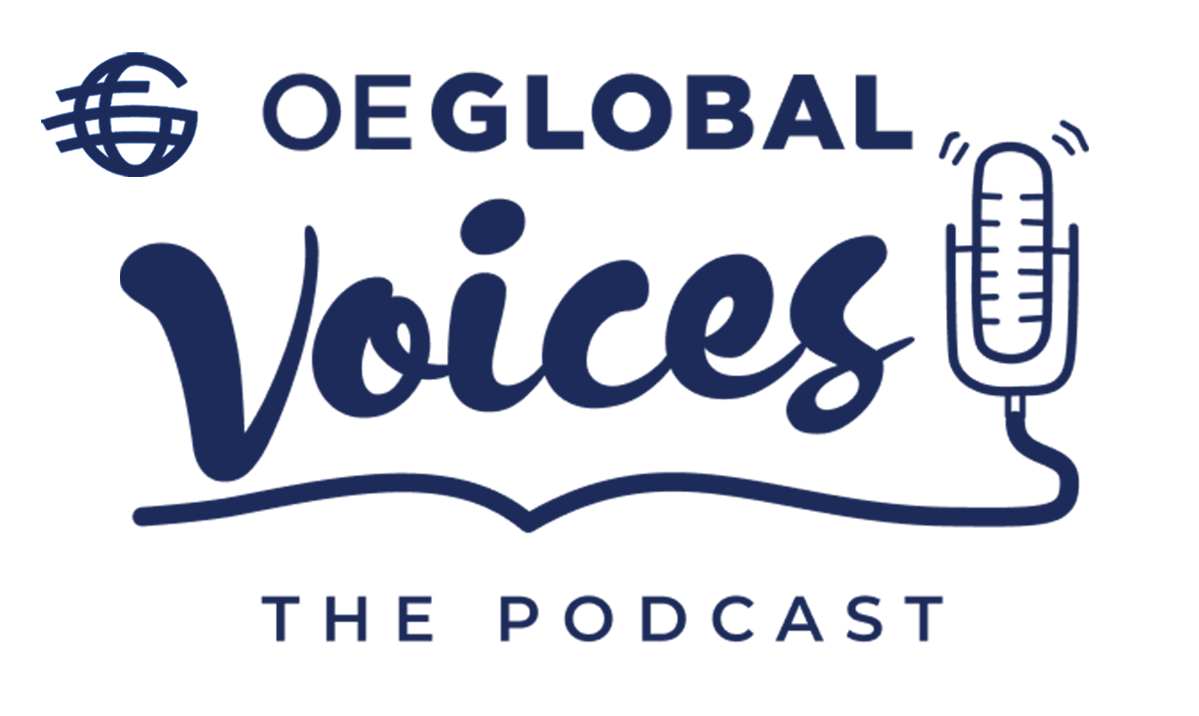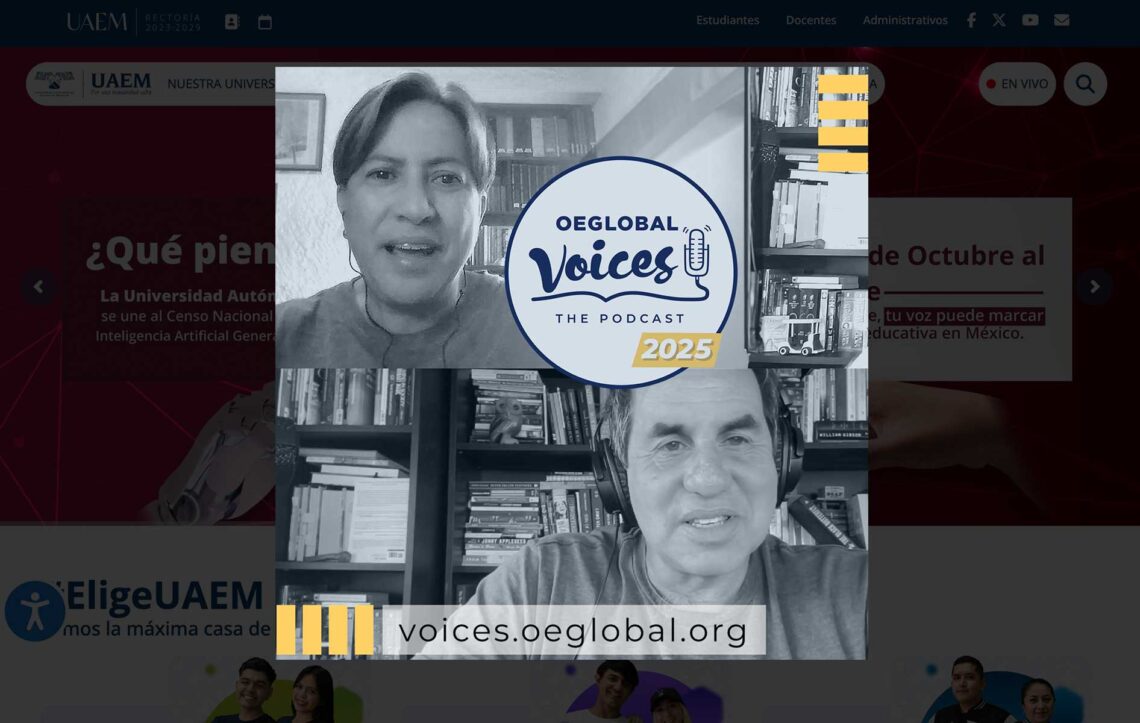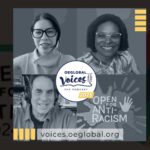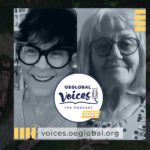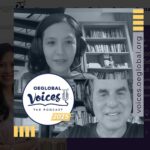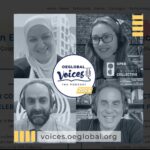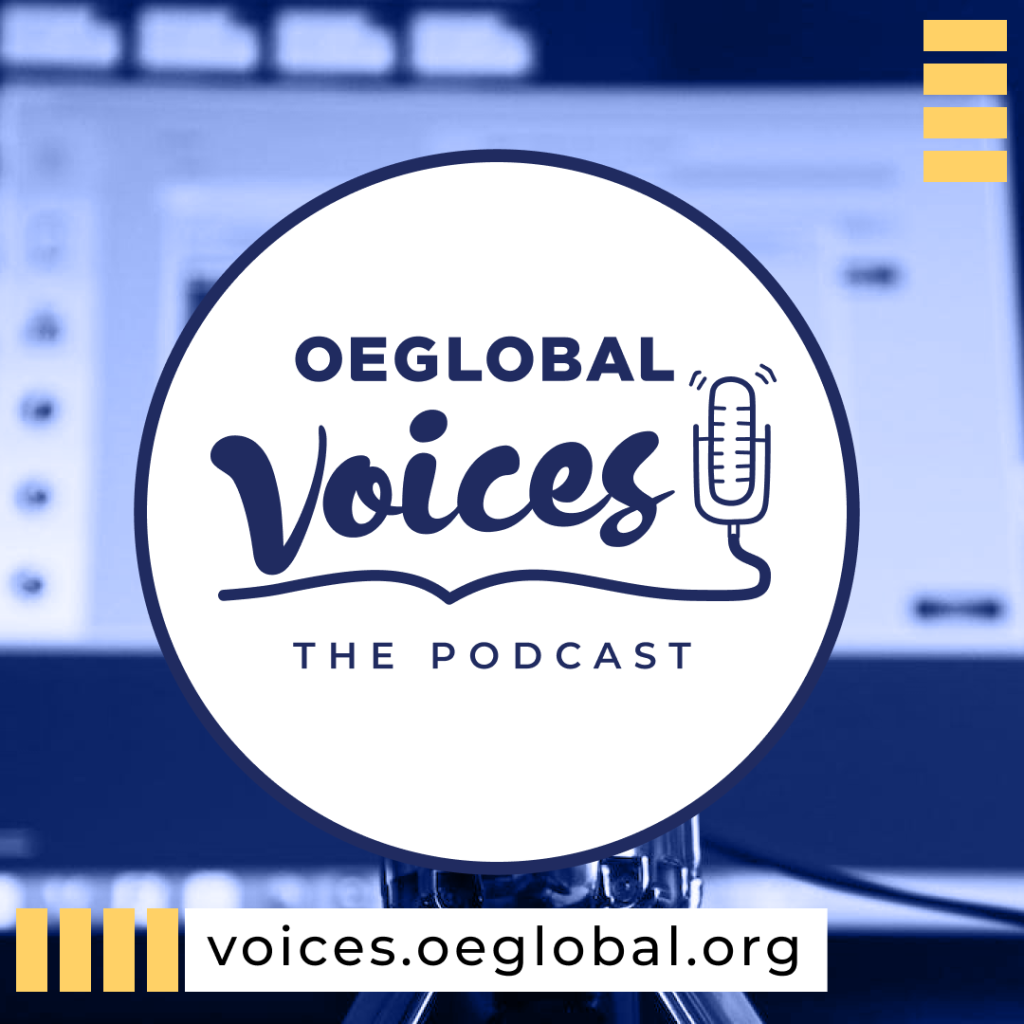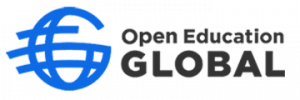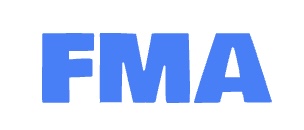In another in our series of conversations with winners of Open Education Awards for Excellence, we take you to the city of Cuernavaca in central Mexico to hear the voice of Maria Luisa Zorrilla, an open educator at Universidad Autónoma del Estado de Morelos (UAEM). In 2024, Maria Luisa was recognized with an OEAward Individual Award as an Educator.
Maria shares her path into open education via studies in Communication, through being early on the web supporting the national fishing industry, her masters study of educational television, PhD research in the media convergence of television and the internet from the University of East Anglia, in the UK, all leading to her role now at UAEM as Director of Multimodal Education. It is here she has been part of this public university’s commitment to educating all citizens in the State of Morelos through online learning and 10+ years of MOOCs plus research and teaching in digital culture.
Listen in for a conversation where almost every line could be a highlight quote.

Podcast: Play in new window | Download
at Descript.com
In This Episode
FYI: For the sake of experimentation and the spirit of transparency, this set of show notes alone was generated by the AI “Underlord” in the Descript editor we use to produce OEGlobal Voices.
Exploring Open Education and Digital Culture with Maria Luisa Zorrilla
In this episode of OEGlobal Voices, recorded on July 25, 2025, host Alan Levine engages in a conversation with Maria Luisa Zorrilla, a celebrated researcher and educator from the Autonomous University of the State of Morelos in Mexico. Maria Luisa, who was awarded an Open Education Award for Excellence, shares her journey and insights on digital culture, MOOCs, and the future impact of artificial intelligence in education. She discusses her career evolution, the importance of digital literacy, the significance of MOOCs in Mexico, and her thoughts on transmedia narratives. The episode emphasizes the commitment to open educational resources and the continuous evolution of educational practices.
- 00:00 Intro Music and Highlight Quote
- 00:38 Podcast Episode Introduction
- 02:02 Conversation with María Luisa Zorrilla
- 03:58 María Luisa’s Background and Career Path
- 07:58 Open Education and MOOCs at UAEM
- 15:44 Digital Culture and Technology in Education
- 22:19 Artificial Intelligence in Education
- 27:27 María Luisa’s Teaching and Research Interests
- 32:45 Closing Remarks and Reflections
(end of AI generated show notes)
Additional Links and Quotes for Episode 89
[In 2010 the Autonomous University of the State of Morelos.] wanted to start a distance education project. So I launched the UAEM project at that time. This is a public university. From the very beginning I was convinced that all the educational resources we created for distance and for hybrid learning should be open. So we adopted Creative Commons licenses for everything we produced.
Now we are celebrating 15 years of doing just that. As for the MOOCs, when they started becoming a trend around, I remember about, 2012 or 2013, more or less. We were curious. Since I lead the area in charge of creating online learning content, it felt natural for us to experiment. That’s how we launched our very first MOOC in 2016, Internet Searching for Higher Education Students. Now it’s been running for 10 years.
Maria Luisa Zorrilla on open education at UAEM
- Maria Luisa Zorrilla OEAwards for Excellence, 2024 Educator Award
- EDUCATIONAL TELEVISION BEYOND THE TV SET Educational Media Convergence in the UK and a Proposal for the Mexican Model (PhD Thesis)
- BBC Schools (Wikipedia)
- Zorrilla, María Luisa. (2005). Comunidades Virtuales en Internet. Definición y clasificación. Acta Sociologica. 77-91.
- EDUCATIONAL TELEVISION BEYOND THE TV SET Educational Media Convergence in the UK and a Proposal for the Mexican Model (PhD Thesis)
- Cuernavaca, capital of Morelos, Mexico (Wikipedia)
- Popocatépetl volcano (Wikipedia)
- Code and Other Laws of Cyberspace by Lawrence Lessig (Wikipedia)
- Mexico etc versus US: ‘tuna-dolphin’ (World Trade Organization)
- Universidad Autónoma del Estado de Morelos (Autonomous University of the State of Morelos)
- Educación Multimodal, pilar para el futuro educativo en la UAEM
- MOOC: Búsqueda en Internet para Universitarios (MOOC: Internet Search for University Students)
- Education in Mexico (Wikipedia)
- Preparatoria Wikipedia)
- Telesecundaria (Wikipedia)
- Secretaría de Educación Pública (Gobierno de México/Ministry of Public Education, Government of Mexico)
- Plan México Gobierno de México
- MéxicoX MOOC platform (@prende.mx)
- 4 ways micro-credentials and skills-based hiring can help displaced workers access jobs of the future (World Economic Forum)
When I did my masters degree I studied virtual communities. At the time it was very new. There was an author, Howard Rheingold, who wrote a book about virtual communities. He was my guru! There’s where I started being interested in technologies and digital culture. Thinking of it of different ways, [digital culture] is just how people are in the net, how they exist in the net, but also how they act, how they do things, but also with which capabilities, with which competencies.
Maria Luisa Zorrilla on digital culture
- Howard Rheingold (personal web site)
- The Virtual Community book (Wikipedia)
- read online (hrheingold.com)
- The Virtual Community book (Wikipedia)
- Transmedia Storytelling (Wikipedia)
That’s why in our university we are working in some guidelines for all the communities, students, teachers, everyone, to establish certain rules for everyone. What is allowed? What is not allowed? And how do you make visible you are using these tools, how are you using them and what percentage of the work you are presenting is done by this technology.
A very important thing is making student conscious of what they might lose in their education, in their own building as persons if they use that a lot. For example, when I write in English, sometimes I have doubts how to say something, but I make myself write in English first with my brain. And then I ask for example, ChatGPT, please proofread this. And so I check what was changed and what was corrected. But then I still I keep my writing because if I write it in Spanish and say “Please translate to English”, that’s easier. I don’t have to think in English. But then I will lose my capability of writing in English, I don’t want to lose that.
That’s what I’m trying to tell the students that, please don’t go to de-skilling. No, please upskill or re-skill, but that de-skill, no.
Maria Luisa Zorrilla on Artificial Intelligence
Listen to more from our episodes recorded with Open Education Awards for Excellence winners.
Our open licensed music for this episode is a track called The Threat of Education by Independent Music Licensing Collective (IMLC) that is licensed under a Creative Commons Attribution-NonCommercial-NoDerivatives license. Like most of our podcast music, it was found at the Free Music Archive (see our full FMA playlist).
